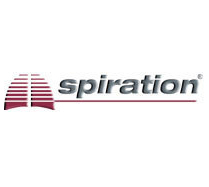Spiration, Inc. Receives First FDA Approval for Bronchial Valve
by
Joan Trombetti, Writer | October 28, 2008

Spiration, Inc.
Spiration, Inc., a developer of novel medical devices designed to benefit patients with acute and chronic conditions of the lung, announced that the company has received Humanitarian Device Exemption (HDE) approval from the U.S. Food and Drug Administration (FDA) for the use of its minimally invasive IBV(R) Valve System to control prolonged air leaks of the lung, or significant air leaks that are likely to become prolonged, following lobectomy, segmentectomy, or lung volume reduction surgery. This FDA approval represents the first for a bronchial valve implant for the lungs.
The FDA HDE approval of the IBV Valve System is based on results from 58 patients enrolled in a U.S. IDE study of the device for the treatment of emphysema and four patients treated with the IBV Valve System for prolonged air leaks under IDE compassionate use exemptions. The effectiveness of the device for this use has not been demonstrated.
About Humanitarian Device Exemptions
A Humanitarian Device Exemption is a U.S. Food and Drug Administration (FDA) application that is similar to a pre-market approval (PMA) application, but exempt from the effectiveness requirements of a PMA. An approved HDE authorizes marketing of a Humanitarian Use Device (HUD). An HUD is a medical device that is intended to benefit patients in the treatment or diagnosis of diseases or conditions that affect or is manifested in fewer than 4,000 individuals in the United States per year.
About Prolonged Air Leaks
Air leaks are a common complication of surgery caused by lung tissue that has not completely closed and sealed, resulting in an accumulation of air in the chest that can cause breathing difficulties. As air leaks from the lung, it accumulates in the pleural cavity, making breathing difficult and interfering with normal lung expansion. Most air leaks are of small volume, are self-limited, and close naturally after a few days. In some cases they persist longer than five to seven days, at which point they become classified as prolonged. Prolonged air leaks can contribute to significant morbidity and mortality and affect outcomes after thoracic surgery.
About the IBV Valve System
The IBV Valve System is a minimally invasive treatment that has diverse applications in both acute and chronic conditions of the lung. During the minimally invasive procedure, a catheter is passed through a bronchoscope (a flexible tube passed into the bronchial tubes through the mouth or nose) to deploy the small umbrella-shaped valves into the airways of the lungs. The valves are designed to be easily removed via a similar bronchoscopic procedure.
